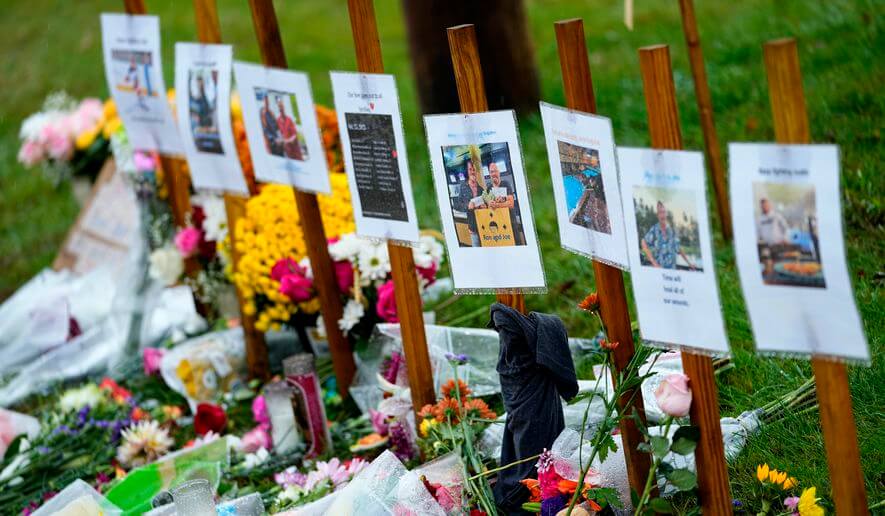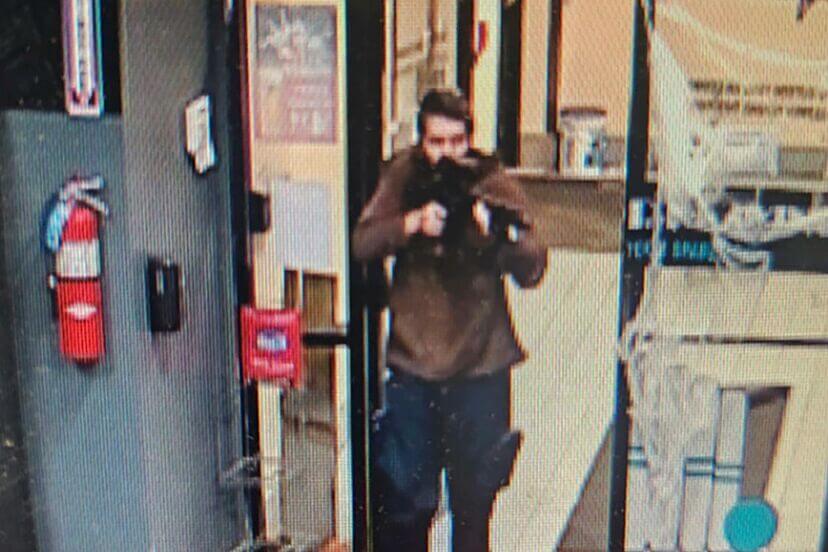Robert Card, a certified firearms instructor and a member of the US Army Reserves, committed this year’s worst mass shooting in Lewiston, ME, located 35 miles north of Portland. Armed with a scoped AR-style rifle, he killed 18 people and wounded at least a dozen more at two locations: a bar and grille, and a bowling alley. Card frequented both locations with his former girlfriend, with whom he recently broke up. He remained at large for two days after the shooting, prompting local businesses to close, residents to shelter in place, and schools in Portland and nearby towns to cancel classes. He was later found dead from a self-inflicted gunshot wound to the head inside a metal trailer at a recycling plant where he previously worked. He left a final note to his son full of rants plus his phone’s passcode and his bank account.
Click to Read Sections:
Card Was a Known Threat But Slipped Through the Cracks
As it turns out, authorities knew about this threat, but Robert Card slipped through the cracks. Sagadahoc County Sheriff Joel Merry said he sent deputies to Card’s home in September after the US Army Reserve tipped him off that the firearms instructor had issued “veiled threats” against an Army base — but couldn’t find him. The Sheriff sent an awareness alert about Card to all of the state’s law enforcement agencies. Authorities sent extra patrols to the base, but Card never appeared there.
In the summer of 2023, Card was in a mental health facility for two weeks after he reported hearing voices. He also made threats to shoot up the National Guard base in Maine. However, it’s not clear yet if he was involuntarily committed to the mental institution, or only confined for observation. Commitment requires a court order; where involuntary confinement for observation can be done by law enforcement, or in this case the military. The Army Reserve even restricted his access to firearms and ammunition. The federal standard that disqualifies a civilian from purchasing or possessing a firearm is the involuntary commitment to a mental health facility or adjudication as mentally defective. After two weeks of observation he was sent home – still in possession of his personal AR rifle.
Three months before the shooting, Card was denied from taking possession of a suppressor because he disqualified himself on the transfer application. The question on ATF Form 4473, which is used for firearm transfers by licensed dealers, asks “Have you ever been adjudicated as mentally defective OR have you ever been committed to a mental institution?” Card answered yes, and he was denied the transfer by gun shop personnel. National media described it as a “silencer”, saying if he had used a silencer more people could have died because they would not have heard the gunshots. Obviously, reporters have been watching too much TV, since that’s the only place a mythical “silencer” works. A suppressor quiets the decibel level of a gunshot by 10-20%, bringing it down from 130-140 to 105-115 decibels – still quite loud but under the level considered harmful to the shooter’s hearing.
Shooting Spurs Immediate Calls for Gun Control, But Not Mental Health Services
In the wake of the mass shooting, there were calls for Congress to pass stronger gun restriction laws, including making background checks universal, passing a red flag law, and banning “assault” weapons and high-capacity magazines. Maine is one of about 20 states that allow residents to carry a handgun without a permit, and the state has a longstanding culture of gun ownership tied to its traditions of hunting and sport shooting. Unlike 21 states and the District of Columbia, Maine lacks a “red flag” law where individuals can petition a court to remove an person’s guns, but does have a yellow flag law allowing law enforcement to do so. It’s unknown if the revocation of his gun rights could have prevented the shootings, but certainly could have made it harder for him to possess a gun or acquire a new one through retail channels. However, little was said about improving access to mental health services.
Maine has nearly 30 times more law enforcement officers than mental health crisis counselors
As of the end of 2021, there were only 87 mental health crisis workers for the entire state, compared with more than 2,500 law enforcement officers. At the time of the shooting more than 2,000 patients in Maine were awaiting outpatient mental health treatment while 3/4 of emergency room beds were filled with individuals needing mental health care.
Meanwhile, more than 20 mental health residential programs in Maine had closed this year due to lack of staffing and inadequate financing. Spring Harbor Hospital is the only nonprofit private psychiatric hospital with inpatient services in Maine, and it has only two state-run mental hospitals.


